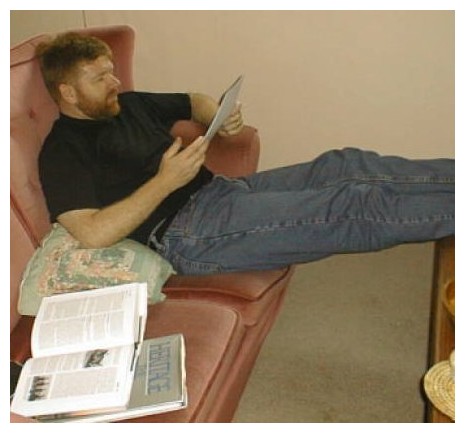
November 2003
Achievement Profile: Sandra Savignon
Achievement Profile: Gavin McCardle
Report from TESOL Peace Forum in DC
Inside Report on New York City's ELL Program
![]()
/ Index /
/ Letters /
/ Search /
![]()
Subscribe
for free!
Achievement Profile: Gavin McCardle
Easing the Load for Harried ELS Teachers
Gavin McCardle is Managing Editor at the famous English-to-Go. He works with the Editor and the Associate Editor, who are in charge of all the content on all the sites, to help them get all the production and administration done without distracting them from the creation of the materials. He also assists with the development of a small private language school. Gavin McCardle studied at Victoria University of Wellington, Massey University and Queensland University of Technology. He has taught at Queensland University of Technology, Waikato University, Queensland TAFE and a couple of private language schools, as well as at high schools before moving to ESL. The ESL MiniConference Online is honored to share comments from Gavin McCardle with our readers in the following Achievement Profile interview.
Some Gavin McCardle links:
English-to-Go (www.english-to-go.com)
Instant Workbook (www.instantworkbook.com)
Selfaccess.com (www.selfaccess.com)
An ESL MiniConference Online interview
with Gavin McCardle:

What is your main ESL activity now? What are your principal projects, and what is on the back burner?
I work now as an editor for English To Go, co-ordinating the production of materials for the ELS classroom. I also spend time advising ELS management on various issues. A project on assessment is on the back burner. Hopefully, I'll have time to get back to that at some stage! It looks at how changes in the attitudes and beliefs held by students can have as big an influence on the outcomes of assessment as changes in the types of assessment.
How did you start your ESL career? Who influenced your decision? What were some important formative experiences in the early stages of your development?
I had taught early on, then spent some years working in government and university management before returning to the more interesting and challenging world of the classroom! ELS teaching allowed me to meet people from a range of interesting countries and backgrounds.
Dr Noel Watts and his team at Massey University, New Zealand was one group of academics who were a major influence on my teaching. Another academic whose work I found very interesting for ELS teaching, even though it was not aimed at ELS teaching, was Mary Mannison of the Queensland University of Technology. These lecturers were able to relate academic theory directly to the classroom so that what I learnt was directly relevant to my teaching.
What are the four or five language/culture backgrounds with which you are most familiar as a teacher? Which ones are you familiar with from the perspective of a language learner yourself? What insights have you gained in how to meet the needs of English learners from these cultures and language backgrounds?
As a teacher, I am most familiar with students from Japan, China, Tonga, Germany, Holland, Korea and Thailand.
I have attempted to learn Dutch and Tongan. When you're learning a language yourself you see how frustrating language learning can be, especially if you are living in the host country and are encountering difficulties on a daily basis. In this situation teachers end up being much more than just a teacher to students: advising on cultural and behavioural issues, and becoming the trusted link to the target culture!
As a language learner, I learn much faster if I enjoy what I am doing and am actively involved. This has carried through to my own teaching.
If you had to give three pieces of advice to a new ESL teacher, what would they be?
1. Nothing is as simple as your training may have led you to believe. No one style of teaching or pedagogy will answer all your and your students' needs.
2. Use what you think is useful and be ready to continually try new things and update your style.
3. Have confidence in yourself and your own knowledge of your students and, above all, have fun! Your students will appreciate enthusiasm, humour and genuine concern for their progress.
What do you see as the most important issue facing the ESL/EFL teaching profession today?
Right now, in one area of the industry, that would be the pressure of an increasingly profit-driven industry, at times driven by managers or owners with little experience or interest in ELS/EFL teaching. This pressures teachers to perform in spite of physical, timetable and resource restrictions driven by the short-term bottom line. There is also increasing pressure on teachers to complete reports, assessment and other kinds of paperwork so that their actual time teaching is being increasingly limited.
Interviewed by Robb Scott
2003 ESL MiniConference Online